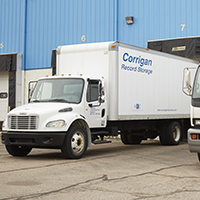
For the sake of your success, it’s ideal to ensure you are always seeking out the best practices for health IT management. As the influx of data within healthcare industry continues to increase exponentially, long-term data retention is becoming even more of a crucial resource for healthcare providers. However, as the Department of Health and Human Services continues to crack down on data loss by enforcing exorbitant fees for offenders, healthcare institutions are struggling to find fast and effective solutions for common long-term storage concerns such as cost, capacity, data protection, and more. Below is a compilation of some of the agreed upon best practices for health IT data management.
Information Mapping
The biggest contributing factor to the congestion in our country’s health systems is the abundance of incoming applications and related information. One of the best practices you can apply to your operation is information mapping. Understanding how health systems relate to one another, as well as where certain information is kept secure is an essential part of ensuring that your institution remains compliant and prepared for any situation, including legal proceedings in which your institution may be required to release sensitive information. Information mapping is also a major part of projecting your future needs, and can help you stay organized so that you’re prepared when it comes time to start planning new policies, migrating your data between systems, or decommissioning your system entirely. Relying on outdated practices for organizing your incoming data, especially when constantly faced with surges of inbound information, only guarantees unintentional yet inevitable non-compliance, leading to an increase in your institution’s storage costs and an inability to effectively manage your information.
Data Storage
Another great way to optimize your daily and future operations is to update your data storage habits. Most healthcare providers tend to consider all data as live, or active, but this can very quickly slow down your efforts when looking for something specific. Remaining compliant is all about security and accessibility, meaning you need to ensure your data is stored using methods that increase your ability to effectively find what you’re looking for. When it comes to the best practices for approaching data storage, the most important things to remember are to take into account what all your data is and where it’s coming from, to accurately anticipate future data growth, and to calculate current storage needs and potential projections to determine estimated storage growth to help you stay prepared for your future data storage needs. Once you understand your storage needs, including specific requirements for different data categories, you will be able to create a comprehensive data management strategy that will outline how your data should always be stored.
Corrigan Record Storage offers countless information management services, meant to help protect what matter most to you. Please call 248.344.9185 or 1.800.944.7716, or complete the contact form in the sidebar to learn more about all of our convenient, secure and affordable services provided only by Corrigan Record Storage.



